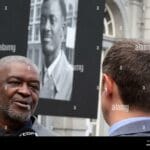Let’s delve into the captivating world of Stephen Hawking, a renowned physicist who revolutionized our understanding of the universe. His groundbreaking theories on black holes, the Big Bang, and the very essence of reality have left an indelible mark on science. Despite battling amyotrophic lateral sclerosis (ALS), Hawking defied expectations, becoming a symbol of resilience and the insatiable thirst for knowledge. Join us as we explore the extraordinary life and enduring legacy of Stephen Hawking, a shining star in the scientific cosmos.
Confronting the Cosmos: Hawking’s Rise to Fame
Imagine a mind brilliant enough to unlock the universe’s secrets while grappling with a debilitating illness. That was Stephen Hawking. Born in 1942, he was an ordinary child with an exceptional understanding of how things worked. However, during his youth, he received a life-altering diagnosis: ALS, a disease that progressively weakens muscles. Doctors believed he wouldn’t live long, but Hawking had other plans.
ALS gradually robbed Hawking of his mobility and voice. Yet, it couldn’t touch his spirit or intellect. He relied on a wheelchair for movement and a computer for communication, his synthesized voice becoming instantly recognizable worldwide.
Despite facing extraordinary challenges, Hawking rose to prominence in the world of physics. He explored the enigmatic nature of black holes, those cosmic entities that consume anything venturing too close. Hawking proposed that black holes weren’t entirely black, suggesting they emit a faint radiation, now known as Hawking Radiation. This groundbreaking idea shook the foundations of astrophysics.
Hawking possessed a unique talent for making complex concepts accessible. His book, “A Brief History of Time,” transformed intricate ideas about the universe into something understandable for everyone. The book’s immense success demonstrated that amidst a world consumed by popular culture, the human thirst for knowledge remained strong.
Beyond the Wheelchair: The Impact of ALS
Stephen Hawking’s story is one of a brilliant mind battling a body slowly failing him. We know about his incredible intellect and fight against ALS, but when did this struggle for mobility begin? When did Stephen Hawking stop walking? This question highlights a pivotal moment in his life, a shift from physical freedom to the wheelchair that would become synonymous with his image.
ALS, the relentless disease that gradually paralyzed him, was diagnosed when he was only 21. Imagine facing such a diagnosis at such a young age. Each passing year brought new challenges as his condition progressed. While there isn’t a precise documented date for when walking became impossible, it’s widely accepted that by the late 1960s, the wheelchair had become a necessity. This marked a new chapter in Stephen’s life.
Think of the strength he summoned to adapt, to continue his explorations of the universe even as his world became physically confined. Initially, he used a simple handheld switch for communication, painstakingly spelling out words one letter at a time. Then came the speech synthesizer, a marvel of technology that became his voice, resonating in lecture halls and captivating audiences globally. This was a man who refused to be silenced.
The image of Stephen Hawking in his wheelchair, his synthesized voice a symphony of thoughts, became inseparable from his brilliance. His physical limitations were ever-present, but they never overshadowed the powerful mind striving to unravel the cosmos’ secrets.
The Enduring Legacy: What Was Stephen Hawking Famous For?
Stephen Hawking wasn’t merely a scientist; he was a theoretical physicist who revolutionized our understanding of the universe. He dedicated his life to exploring the most fundamental questions: how did the universe begin? What happens inside black holes? His theories challenged conventional wisdom and reshaped our understanding of the cosmos.
While his work on black holes brought him scientific acclaim, it was his book, “A Brief History of Time,” that propelled him to global stardom. Hawking possessed a remarkable ability to explain even the most intricate scientific concepts in a way that resonated with everyday people.
One of his most significant contributions was the theory of Hawking radiation. Before Hawking, black holes were thought to be cosmic vacuum cleaners, consuming everything in their path without exception. However, Hawking challenged this idea, proposing that black holes emit a faint thermal radiation, now known as Hawking radiation. This revolutionary theory challenged the belief that nothing, not even light, could escape the gravitational pull of these celestial giants.
Hawking’s impact went far beyond scientific discoveries. His diagnosis with ALS, a disease that gradually weakens muscles and impacts physical function, could have been a devastating blow. However, he never allowed his condition to define him. He continued to work, write, and inspire others, proving that the human spirit can overcome seemingly insurmountable obstacles.
Even after his passing in 2018, Hawking’s legacy continues to shine brightly. His books, lectures, and interviews still resonate with people from all walks of life. He reminds us that curiosity knows no bounds and that the pursuit of knowledge is a journey worth taking, regardless of the challenges we face. Hawking’s story is a powerful testament to the strength of the human spirit and the limitless potential of the human mind.
Unlocking the Mystery: Stephen Hawking’s IQ and Enduring Legacy
The precise IQ of Stephen Hawking remains a mystery, but this analysis delves into his life, achievements, and why fixating on a single number diminishes his profound impact. It’s likely that his IQ was exceptionally high, given his groundbreaking work and contributions to theoretical physics. However, focusing solely on this metric undermines the complexity of his genius and the remarkable challenges he overcame.
Recommended Titles:
- Beyond IQ: Unveiling the Genius of Stephen Hawking (Focuses on achievements over a single number)
- Stephen Hawking’s IQ: Why It Matters Less Than You Think (Provocative, challenges common assumptions)
- The Brilliance of Stephen Hawking: A Legacy Beyond Numbers (Emphasizes lasting contributions)
Hawking himself downplayed the significance of IQ, emphasizing the power of curiosity, perseverance, and the human spirit. He believed that intelligence was not defined by a test score, but by one’s ability to think critically, ask questions, and seek answers.
Stephen Hawking’s Final Words: A Deep Dive
Stephen Hawking’s final words, revealed in his posthumously published book “Brief Answers to the Big Questions,” offer a poignant glimpse into his thoughts and beliefs. In these final reflections, he addressed some of the most profound questions facing humanity, leaving behind a legacy of intellectual curiosity and a call to embrace the wonders of the universe.
One consistent theme throughout his life was his atheism. He firmly believed that no personal God governed the universe. His final words, “There is no God. No one directs the universe,” underscored this belief, sparking global conversations about faith, science, and the meaning of existence.
Beyond the cosmos, Hawking cared deeply about humanity. A touching testament to this was his family’s decision to donate funds for an Easter meal for the homeless in Cambridge, England, where he lived. This simple act of kindness spoke volumes about his character. Even while facing his own mortality, he sought to make the world a better place.
His final message was infused with hope, urging us to “look up at the stars and not down at our feet.” He yearned for humanity to embrace curiosity and never cease exploring and pushing the boundaries of knowledge. Hawking’s life exemplified the power of resilience. Despite living with ALS, his mind remained sharp, and his spirit soared. He refused to let his condition limit his pursuit of knowledge or his desire to share his passion for science with the world. His legacy extends far beyond any scientific theory, serving as a beacon of hope and inspiration for generations to come.
To learn more about the impact of individuals who challenged societal norms and sparked change, you can explore the Stonewall Liberation Organization Boston and their contributions to the LGBTQ+ movement in Boston.
















